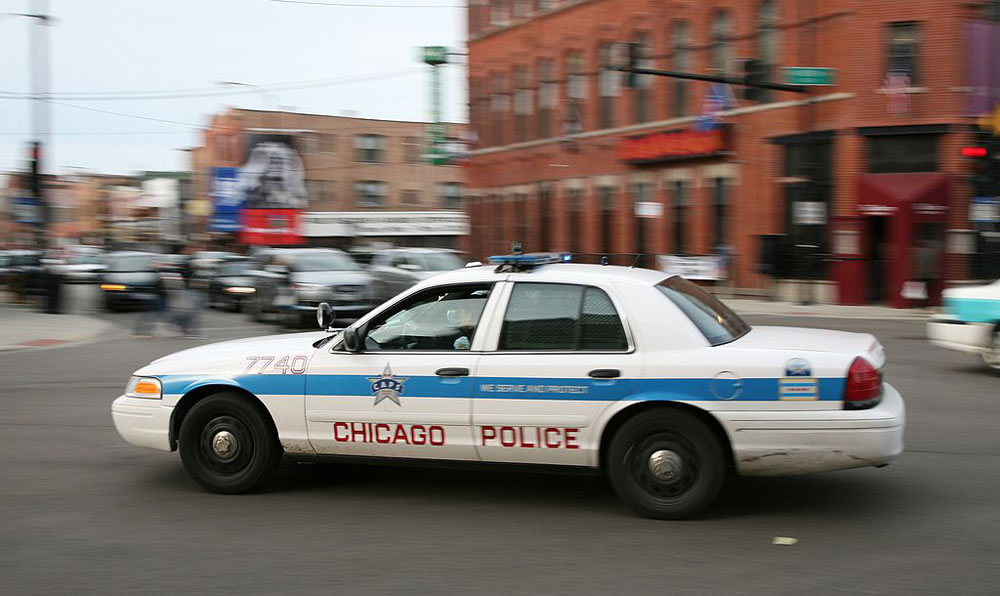
June 12, 2020; Chicago Tribune
The budget for Chicago’s Police Department was a cool $1.8 billion this year (37 percent of city general funds), and since 2004 the city has had to pay $757 million on settlements, losses at trial, and other expenses related to police misconduct. But even as conversations about reallocating police funding have intensified in the last several weeks, Chicago remains the largest US city that has yet to commit to rerouting some police funding to social programs.
Police reform has long been a subject of debate, but following the killing of George Floyd at the hands of Minneapolis police on May 25th, the conversation in many cities has shifted its focus from reform to reducing—or in some cases completely eliminating—police budgets. Proponents of police defunding have advocated for shifting law enforcement budgets to social services and community investment to address poverty, housing insecurity, education, mental health, substance abuse, and more.
This idea is gaining traction in big cities like New York and Los Angeles, where mayors have pledged to reallocate at least some resources to social programs. So far, Chicago, which spends a greater percentage of its budget on policing than either of those cities, has not followed suit.
This reluctance may be due in part to Chicago’s challenges with gun violence and violent crime. Chicago reported 492 homicides and 2,151 shootings in 2019. Recent data show the gun homicide rate per 100,000 people in Chicago is four times greater than in Los Angeles and 12 times greater than in New York City. But the past 50 years have made it pretty clear that attempts to suppress that violence through police force has not worked; instead, it’s created a locked system that seems frozen in place, despite its horrific toll on the city’s neighborhoods. As some may recall, Chicago was host to the brutal home invasion and shooting of Fred Hampton and Mark Clark of the Black Panther Party for Self Defense fifty years ago. Those kinds of tactics were ineffective back then and remain ineffective now.
But Chicago does present some unique opportunities. The Chicago region is home to 8,089 nonprofits (8.5 per 10,000 people), many of which are already set up to offer the sorts of social services being discussed in the police funding debate. Nevertheless, so far, Chicago mayor Lori Lightfoot has been resistant to the idea of defunding Chicago’s police force.
“I don’t think that’s an appropriate action at this time,” Lightfoot said when asked about police defunding on June 4th. “I think that the people in our neighborhoods want and have been begging for more police support. In light of what’s happened over the last couple days, it would be irresponsible for me to even entertain any idea that we would cut back on our public safety resources at this time.”
Again, some might argue with her characterization of the current police force as “public safety,” but 10 days later, she had slightly altered that hard stance, perhaps seeing the writing on the national wall.
Sign up for our free newsletters
Subscribe to NPQ's newsletters to have our top stories delivered directly to your inbox.
By signing up, you agree to our privacy policy and terms of use, and to receive messages from NPQ and our partners.
“We absolutely have to have reform and accountability of our police department. But equally imperative and urgent is the absolute necessity of investing in communities,” Lightfoot said during a question-and-answer session on June 9th.
The costs of police misconduct in Chicago have been high, including the financial ones. The city is currently undergoing court-ordered reforms to police practice, mandated by a consent decree that came about after the fatal November 2015 shooting of black teen Laquan McDonald at the hands of a Chicago police officer. Lightfoot has said these reforms have the potential to be “utterly transformative.”
Chicago also is a vibrant city full of activists and visionaries, and the idea of reallocating police funding in favor of social programs, even as state and city budgets are likely to be stretched thin, has support from many, including at least six Chicago aldermen who expressed their position in a June 8th editorial published in the Chicago Sun-Times.
“If we want safe and thriving communities, we need to address the root of the current political crisis: the growing racial and economic inequality in our society that have only been exacerbated by the COVID-19 pandemic,” the editorial reads. “It is well documented that measures like expanding access to substance abuse treatment, mental health care and after-school programs all have a clear and sustainable impact on reducing crime. We need to fully fund public programs that are proven to reduce inequality and improve public safety in ways that policing fundamentally does not.”
Meanwhile community organizations have been vocal in their support for police defunding as Black Lives Matter Chicago has called for an “immediate disinvestment” in police funding and for the entire police budget to be reallocated.
Aislinn Pulley, who co-founded the group, says the situation calls for “a fundamental shift.”
“The priorities are upside down,” she says, “The fact that teachers have to fight for education. We need massive health care. That 70 percent of the people who are dying [from the COVID-19 pandemic] are black is because our health care is segregated.”
Others go further, “Policing and imprisonment are violent structures that create collective harm,” adds Damon Williams, an activist with Let Us Breathe Collective, “We should put our money anywhere else.”—Alyssa Conrardy and Ruth McCambridge













